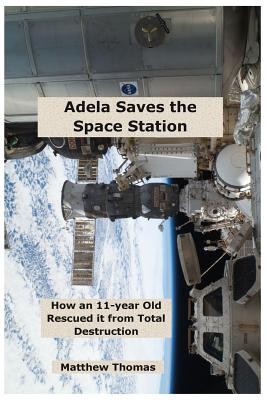| Adela Saves The Space Station: How An 11-Year Old Rescued It From Total Destruction Contributor(s): Thomas, Matthew (Author) |
|
 |
ISBN: 198378852X ISBN-13: 9781983788529 Publisher: Createspace Independent Publishing Platform OUR PRICE: $7.59 Product Type: Paperback Published: February 2018 |
| Additional Information |
| BISAC Categories: - Juvenile Fiction | Science Fiction - General |
| Physical Information: 0.19" H x 5.98" W x 9.02" (0.29 lbs) 90 pages |
| Descriptions, Reviews, Etc. |
| Publisher Description: Adela never dreamed she would be helping a rogue NASA scientist try to save the International Space Station by building the world's first space drive. Growing up on the most isolated farm in central Florida, Adela's life is the definition of boring. Classmates whisper about the backwater lifestyle; her only trustworthy friends are her many animals. Then NASA's most Top-Secret project crash-lands on her pond, only to be promptly eaten by an alligator. With her best friend, a tuxedo cat named Louie, they find and raise an unlikely survivor. As the clock ticks down, Adela's love for animals and intense self-sufficiency are NASA's only hope for saving the Space Station, its astronauts, and the entire space program from fiery destruction. This book explores what might happen in the not-to-distant future because of two new areas of science: rapid genetic engineering (of ducks), and improved space propulsion. In the back are two science appendixes that accurately describe what these areas of science can do today. The first appendix is illustrated and fleshes out the science behind several important chapters. The second appendix provides detail for the two basic concepts that make up this story. We do have rapid genetic engineering now, with no end in sight for what it can accomplish. And there are a few smart, imaginative people working on real, no-kidding space drives, just like Mr. Scott's impulse engines on Star Trek. Could there be new physics that might say "Yes, that space drive actually should work?" Only young physicists exploring the unknown can answer that. |